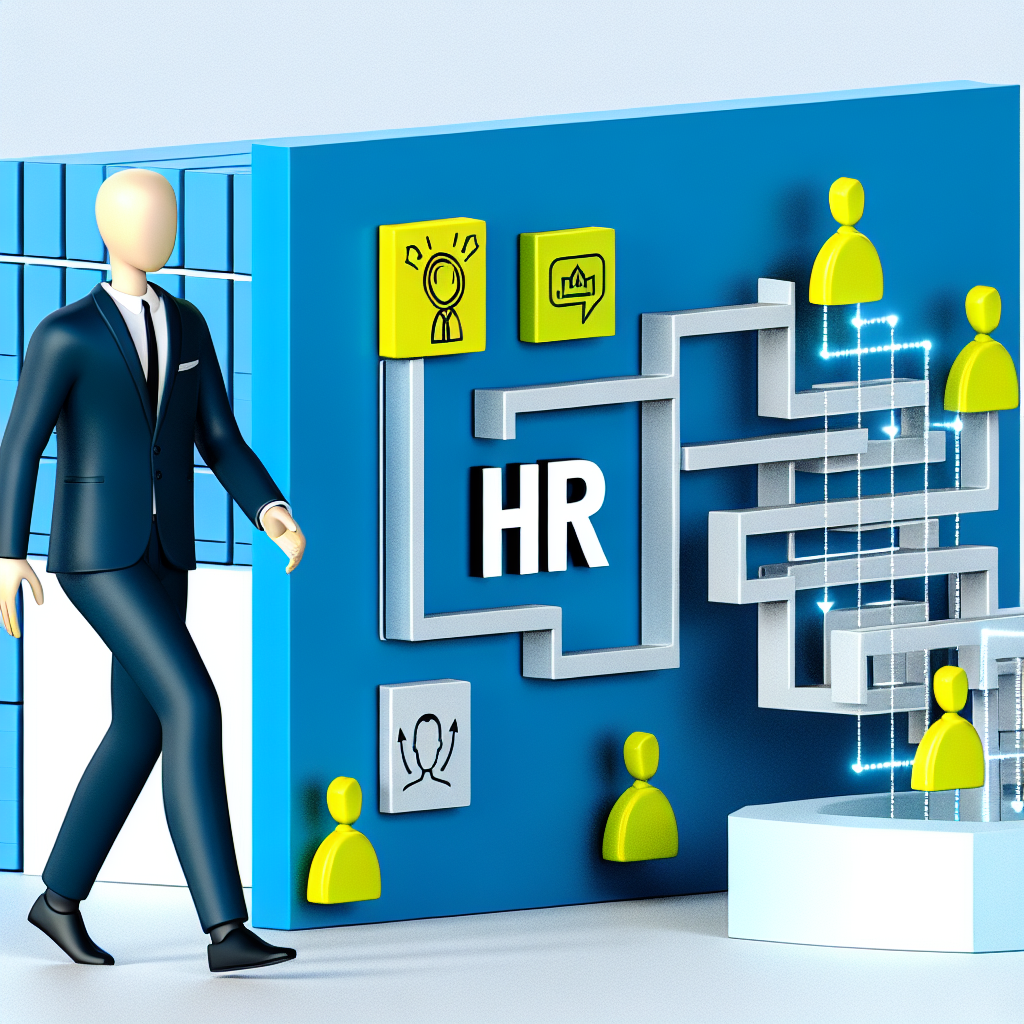
As we navigate through the dynamic landscape of Human Resources, the shift towards HR workflow automation has become a pivotal move for modern organisations. In 2024, more HR professionals are recognising the critical need to integrate technology into their operations, streamlining processes that were once time-consuming and prone to errors. Automation not only simplifies repetitive tasks, but it also liberates HR teams to focus on strategic initiatives that can drive organisational growth.
What is HR Workflow Automation?
HR workflow automation refers to leveraging technology to re-engineer traditional HR processes, enabling the automated management of routine tasks. By doing so, HR professionals can enhance efficiency and effectiveness in core functions, ultimately allowing for a greater focus on strategic contributions to the organisation.
Significance of HR Workflow Automation
- Efficiency and Productivity: Automation drastically reduces the manual efforts required to handle repetitive tasks. For instance, automating the preparation and filing of documents allows HR departments to allocate more time to strategic projects, such as talent management and employee engagement.
- Improved Accuracy: By minimising the risk of human error, automated processes ensure that HR tasks are completed accurately. This reliability is particularly vital in handling sensitive activities such as generating employment contracts.
- Enhancing Employee Experience: Automated onboarding processes can streamline the transition for new hires, creating a more seamless and engaging experience from day one. Additionally, compliance becomes less daunting with automated systems, reducing the risk associated with regulatory mandates.
- Cost Reduction: Automating routine workflows can drastically lower operational costs. By reducing the manual labour involved and minimising errors, organisations can redirect funds towards more impactful strategic initiatives.
Current Trends in HR Workflow Automation
The landscape of HR workflow automation is constantly changing, driven by advancements in technology and shifting workplace expectations. Let’s explore some of the trends that are shaping this evolution.
1. Integration with AI and Machine Learning
As organisations continue to seek improved efficiency, the integration of Artificial Intelligence (AI) and Machine Learning (ML) into HR automation processes is gaining traction. These technologies allow for data-driven decisions and the personalisation of HR workflows to better meet individual employee needs.
2. Adaptation for Remote and Hybrid Work
The rise of remote and hybrid environments has prompted a more urgent need for effective HR workflow automation. Automated systems cultivate transparency and help clearly define roles regardless of employees’ physical locations, ensuring seamless communication and collaboration.
3. Scalability and Customisation
Modern HR workflow automation solutions are designed with scalability and customisation in mind. This adaptability lets organisations redesign their workflows in line with their growth objectives, integrating with various existing business systems.
Key Benefits of HR Workflow Automation
Embracing HR workflow automation carries significant benefits for both HR professionals and the broader organisation. Here are some of the key advantages:
- Improved Accuracy and Compliance: Automated systems maintain consistency in execution, limiting the likelihood of errors that could lead to compliance breaches. This is vital for companies that operate in highly regulated industries.
- Enhanced Productivity: With routine tasks automated, HR teams are better positioned to dedicate their efforts to strategic initiatives, leading to more thoughtful and effective resource allocation.
- Increased Transparency: Automated workflows help maintain clear processes, ensuring that stakeholders remain informed about the status of operations.
- Data Security: Advanced HR automation software often provides security features such as encryption and user authentication, ensuring that sensitive data is protected and complies with industry regulations.
- Data-Driven Decisions: The insights gained from automated systems can reveal areas for improvement and optimal practices. This information is invaluable for shaping HR strategies and enhancing overall effectiveness.
Best Practices for Implementing HR Workflow Automation
Transitioning to automated HR workflows can be challenging, yet implementing a thoughtful strategy can lead to successful adoption. Here are some best practices to consider:
1. Define Objectives and Workflows Clearly
Before diving into implementation, it is crucial to clarify the objectives of your automation project. Identifying which specific tasks will be automated and ensuring stakeholder alignment is vital for a smooth transition.
2. Involve Stakeholders
Engaging all stakeholders from the outset will promote a sense of ownership and clarity regarding their roles within the automated processes. This inclusion fosters collaboration and enhances the likelihood of a smooth transition.
3. Provide Comprehensive Training and Support
To facilitate a successful shift to an automated system, comprehensive training and resources must be available to all users. This could include tutorial materials, documentation, and forums for questions or troubleshooting.
4. Regularly Monitor and Update the System
Maintaining the automation system is essential. Regular monitoring allows HR to adapt the system to meet changing needs and gather feedback for future improvements, ensuring broad user satisfaction.
Conclusion
The transition towards HR workflow automation represents a significant opportunity for HR professionals to enhance operational efficiency while delivering a better employee experience. By utilising contemporary technology to streamline routine tasks, organisations can reduce costs and structural inefficiencies. Engaging in thoughtful, well-planned automation practices can yield a more agile HR function that is better equipped to support sustainable growth. As we progress further into the age of AI and machine learning, the significance of HR workflow automation will undoubtedly continue to expand, leading to improved organisational outcomes.
For more insights on HR workflow automation and its benefits, consider diving deeper into resources that explore trends and technologies shaping the future of Human Resources. By staying informed, HR professionals can harness the full potential of workflow automation to achieve strategic objectives and drive business success.
- HR Workflow Automation Overview
- Trends in AI and Machine Learning for HR
- Enhancing Employee Experience through Automation
Vadim Kouznetsov is a distinguished entrepreneur and the visionary founder and CEO of JobXDubai.com, the UAE’s rapidly expanding job board. Renowned for his expertise in bridging the gap between job seekers and employment opportunities, Vadim has become a leading authority in the recruitment and job market of Dubai.
